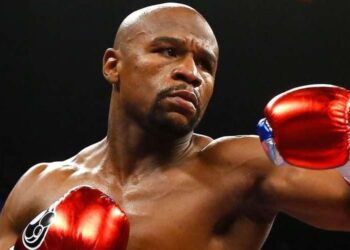Imagine having a conversation with a ultra-successful self-made billionaire, what would you learn from him/her? The interesting tidbits or helpful advice they might give you, will definitely be valueless. Meeting billionaires in person, leaving alone sitting down with them for conversations, is beyond reach for most of us. Many self-made billionaires have written books detailing their lives and the lessons they learnt as they built their fortunes. And thanks to those books, we have access to these amazing innovators and groundbreakers.
Here are the top 10 fascinating and insightful books written by self-made billionaires.
1. Losing My Virginity by Richard Branson
Losing My Virginity is the unusual, frequently outrageous autobiography of one of the great business geniuses of our time. When Richard Branson started his first business, he and his friends decided that “since we’re complete virgins at business, let’s call it just that: Virgin.” Since then, Branson has written his own “rules” for success, creating a group of companies with a global presence, but no central headquarters, no management hierarchy, and minimal bureaucracy. Many of Richard Branson’s companies were started in the face of entrenched competition.
That’s the philosophy that has allowed Richard Branson to spawn so many successful ventures. From the airline business (Virgin Atlantic Airways), to music (Virgin Records and V2), to cola (Virgin Cola), to retail (Virgin Megastores), and nearly a hundred others, ranging from financial services to bridal wear, Branson has a track record second to none. Losing My Virginity is the ultimate tale of personal and business survival from a man who combines the business prowess of Bill Gates and the promotional instincts of P. T. Barnum.
2. Business @ the Speed of Thought by Bill Gates
Business @ the Speed of Thought discusses how business and technology are integrated, and explains how digital infrastructures and information networks can help someone get an edge on the competition. Gates asserts cyberspace and industry can no longer be separate entities, and that businesses must change to succeed in the information age. Gates stresses the need for managers to view technology not as overhead but as a strategic asset.
Though the book is not a technology handbook it gives insights on how to integrate business process with technology. It explains how advances in networking and information technology can make a difference in day-to-day business. The book is addressed to those business entrepreneurs or business owners who don’t want to stop on the achieved results but prefer to use new technologies for their business, to bring it to automatic mode to run continuously without any extra effort.
3. The Essays of Warren Buffett by Warren Buffett
The essays comprising this book, selected mostly from Warren Buffett’s letters to the shareholders of Berkshire, provide a guide to fundamental business analysis and an approach to wise investing. A central point that Buffett makes is that good investors, rather than focusing on the market, should identify good businesses, attempt to buy them at good prices, and hold them for the long term. Buffett has done just this in his management of Berkshire.
Disagreeing with the dogma popular in recent decades known as modern finance theory that holds that market prices efficiently express business values, Buffett instead argues that the market sets prices in a manic-depressive manner. A good investor learns to insulate himself from market emotions and to make a distinction between market price and intrinsic value. Such an investor will understand that volatility provides investment opportunities and will use market drops to make good purchases.
4. Made in America by Sam Walton
The book of Sam Walton, founder of Walmart, is classic biography book of very successful businessman. A brilliant tale of a startup which went on to become the largest company by revenue. The basic philosophies which Sam Walton brought into his retail and discount chains business has been a driving force behind Walmart’s growth. A fantastic read for any aspiring business or management figure, but also for any position that involves leadership at any level.
Sam talks about his mistakes just about as often as his successes and is constantly giving credit to other people throughout the book. Every day to him seemed to be like another fun challenge. As an avid libertarian and laissez-faire capitalist, he believed strongly about pushing as much control to his employees who he treated them like partners, concentrated on serving the customer with the best prices, and replicated business trends when he had to.
5. What I Know for Sure by Oprah Winfrey
As a creative force, student of the human heart and soul, and champion of living the life you want, Oprah Winfrey stands alone. Over the years, she has made history with a legendary talk show – the highest-rated program of its kind, and went ahead to launch her own television network. Now, for the first time, these thoughtful gems have been revised, updated, and collected in What I Know For Sure, a beautiful cloth bound book with a ribbon marker, packed with insight and revelation from Oprah Winfrey.
Organized by theme – joy, resilience, connection, gratitude, possibility, awe, clarity, and power – these essays offer a rare, powerful and intimate glimpse into the heart and mind of one of the world’s most extraordinary women – while providing readers a guide to becoming their best selves. Candid, moving, exhilarating, uplifting, and frequently humorous, the words Oprah shares in What I Know For Sure shimmer with the sort of truth that readers will turn to again and again.
6. Shoe Dog by Phil Knight
In this candid and riveting memoir, Phil Knight shares the inside story of Nike’s early days as an intrepid start-up and its evolution into one of the world’s most iconic, game-changing, and profitable brands. In a memoir that is candid, humble, gutsy, and wry, he tells his story, beginning with his crossroads moment. A memoir rich with insight, humour and hard-won wisdom, this book is also studded with lessons – about building something from scratch, overcoming adversity, and leaving a mark in the world.
At 24, after backpacking around the world, he decided to take the unconventional path, to start his own business, a business that would be dynamic, different. A memoir rich with insight, humour and hard-won wisdom, this book is also studded with lessons – about building something from scratch, overcoming adversity, and ultimately leaving a mark in the world. He details the many risks and daunting setbacks that stood between him and his dream – along with his early triumphs.
Above all, he recalls the formative relationships with his first partners and employees, a ragtag group of misfits and seekers who became a tight-knit band of brothers. Together, harnessing the transcendent power of a shared mission, and a deep belief in the spirit of sport, they built a brand that changed everything. In an age of start-ups, Nike is the ne plus ultra of all start-ups, and the swoosh has become a revolutionary, globe-spanning icon, one of the most ubiquitous and recognizable symbols in the world today.
7. Onward by Howard Schultz
In Onward, Howard Schultz shares the remarkable story of his return as CEO of Starbucks and the company’s ongoing transformation under his leadership, revealing how, during one of the most tumultuous economic times in history, Starbucks again achieved profitability and sustainability without sacrificing humanity. Offering readers a snapshot of a moment in history that left no company unscathed, the book zooms in to show, in riveting detail, how one company struggled and recreated itself in the midst of it all.
The fast paced narrative is driven by day-to-day tension as conflicts arise and lets readers into Schultz’s psyche as he comes to terms with his limitations and evolving leadership style. Onward represents Schultz’s central leadership philosophy: It’s not just about winning, but the right way to win. Ultimately, he gives readers what he strives to deliver every day a sense of hope that, no matter how tough times get, the future can be just as or more successful than the past, whatever one defines success to be.
Through the lens of his personal leadership journey, with all of its dizzying ups and agonizing downs, this sequel to the founding of Starbucks is grittier, more gripping, and dramatic. Onward is a compelling, candid narrative documenting the maturing of a brand as well as a businessman. This is a must-read for anyone interested in leadership, management, or the quest to connect a brand with the consumer.
8. How to Win at the Sport of Business by Mark Cuban
Mark Cuban shares his wealth of experience and business savvy in his first published book, How to Win at the Sport of Business. Using the greatest material from his popular Blog Maverick, he has collected and updated his postings on business and life to provide a catalog of insider knowledge on what it takes to become a thriving entrepreneur.
Cuban tells his own rags-to-riches story of how he went from selling powdered milk and sleeping on friends’ couches to owning his own company and becoming a multi-billion dollar success story. His unconventional yet highly effective ideas on how to build a successful business offer entrepreneurs at any stage of their careers a huge edge over their competitors.
9. How to Be Rich by J. Paul Getty
J. Paul Getty, the billionaire businessman, discloses the secrets of his success and provides a blueprint for those who want to follow in his footsteps. And he goes beyond the matter of making money to the question of what to do with it. Getty illustrates the purpose and value of having money. He reviews three different mentalities; towards work, towards achieving and towards investing one’s time. Basically, it’s how you spend your time.
The first group is of individuals who work best when they entirely work for themselves, when they own and operate their own business. Next are men who, for whatever reason, do not want to go in business for themselves but who work best when they are employed by others and who share in the profit of the business. Lastly, there are those who work for others but don’t really care whether their employer make a profit or loss as long as their own paychecks arrive on time.
This book is a good meditation not only on how to get rich, but what it means to be rich. It focuses very much on how to be the kind of person who gets rich, including the values guiding the actions of the wealthy. To be truly rich, regardless of fortune or lack of it, a man must live by his own values. Artists of any profession, but in particular entrepreneurs, will profit from Getty’s words on being a non-conformist, dissenter and rebel who is seldom if ever satisfied with the status quo.
10. Direct from Dell by Michael Dell
As Michael Dell journeys through his childhood adventures, ups and downs, and mistakes made along the way, he reflects on invaluable lessons learned. Founded on a deceptively simple premise-to deliver high-performance computer systems directly to the end user, Dell Technologies is an industry powerhouse and the envy of its competition. It has consistently grown at two to three times the industry rate.
In Direct from Dell, you will learn why it’s better for any business starting out to have too little capital rather than too much, why your people pose a greater threat to the health of your business than your competition, how you can exploit your competition’s weakness by exposing its greatest strength, how integrating your business virtually can make the difference between being quick and being dead, and much more.
Michael Dell’s revolutionary insight has allowed him to persevere against all odds, and Direct from Dell contains valuable information for any business leader. His strategies will show you effective ways to grow your business and will help you save time on costly mistakes by following his direct model for success.















